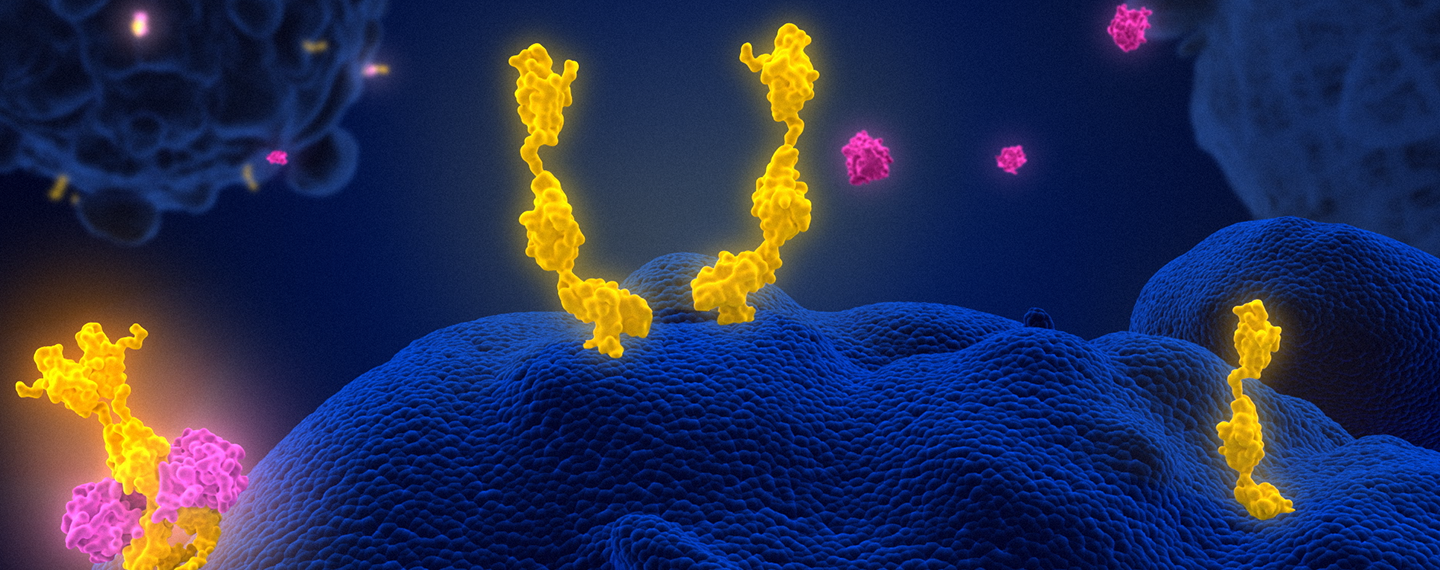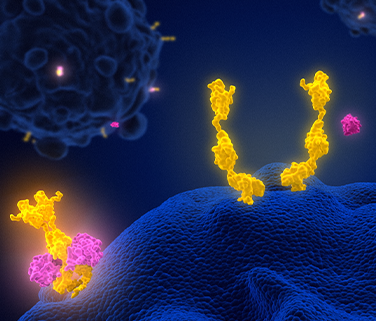Gastric and gastroesophageal junction (G/GEJ) cancers, otherwise known as stomach cancer, is the fourth leading cause of cancer-related death worldwide, with the highest incidence rates occurring in Eastern Asia and Eastern Europe.1 It's challenging to diagnose and treat as the majority of patients with gastric cancer don't present symptoms in early stages.2 In fact, more than 80% of patients with gastric cancer in the U.S. are diagnosed at an advanced stage and face a poor prognosis and low overall survival rate, with just 7% of metastatic patients surviving to 5 years past diagnosis.3,4
With 769,000 deaths worldwide each year, gastric cancer patients need additional treatment options, especially therapies targeting novel biomarkers.1,5 Two well-known biomarkers in gastric cancer are HER2 and PD-L1, but there's also an emerging biomarker under investigation – the IIIb isoform of fibroblast growth factor receptor 2, known as FGFR2b.6,7
"Gastric cancer poses a complex treatment challenge, requiring innovative approaches to improve outcomes for these patients," said Jean-Charles Soria, MD, PhD, senior vice president and Oncology Therapeutic Area Head. "We are committed to exploring the potential of targeting FGFR2b protein overexpression, which may have potential as a predictive biomarker, and we hope to unlock valuable insights that may advance targeted treatment options."
FGFR2b protein overexpression as an emerging biomarker in gastric cancer
FGFR2b is a cell receptor protein found on the surface of some patients' tumor cells, and it plays a role in numerous cellular functions, including cell survival and growth.8 In gastric cancer, the FGFR2b protein is overexpressed in 20-30% of cases* and may be associated with poor prognosis.7
Exploring the role of FGFR2b protein overexpression in gastric cancer represents an exciting potential for targeted therapy.6
Detection of FGFR2b protein overexpression through immunohistochemistry (IHC) testing
Researchers can detect FGFR2b protein overexpression with a type of testing methodology called immunohistochemistry (IHC), however, no test is currently approved for clinical diagnostic purposes.9,10
Amgen's continued commitment to innovation for patients with gastric cancer
Advancements in biomarker testing and exploration of targeted treatment options are imperative for tackling the challenges posed by the complexities of gastric cancer.5,11
Amgen is exploring the full potential of FGFR2b protein overexpression and remains committed to exploring personalized treatment options for gastric cancer patients, including the advancement of late-stage clinical trials evaluating potential therapies targeting the receptor protein in first-line gastric cancer.
To learn more about FGFR2b protein overexpression and its role as an emerging biomarker in G/GEJ cancers, visit www.FGFR2b.com.
*This is an approximate range based on 910 pre-screened patients for a Phase 2 trial in locally advanced or metastatic G/GEJ cancer, of which 274 patients (30%) were prescreened positive for FGFR2b any 2+/3+ tumor cell staining by IHC, and on the 155 enrolled subjects, of which 96 subjects (62%) exhibited FGFR2b ≥ 10% 2+/3+ tumor cell staining by IHC.7
References:
- Sung H, et al. CA Cancer J Clin. 2021;71(3):209-249.
- American Cancer Society. Colorectal Cancer Facts & Figures 2020-2022. Available at: https://www.cancer.org/content/dam/cancer-org/research/cancer-facts-and-statistics/colorectal-cancer-facts-and-figures/colorectal-cancer-facts-and-figures-2020-2022.pdf. Accessed April 11, 2024.
- City of Hope. Stomach cancer stages. Available at: https://www.cancercenter.com/cancer-types/stomach-cancer/stages. Accessed March 19, 2024.
- American Cancer Society. Stomach Cancer Early Detection, Diagnosis, and Staging. Available at: https://www.cancer.org/content/dam/CRC/PDF/Public/8840.00.pdf. Accessed March 21, 2024.
- Sato Y, et al. Journal of Clinical Medicine. 2023;12(14):4646.
- Gastric Cancer Foundation. Biomarkers and Gastric Cancer. Available at: https://gastriccancer.org/biomarkers/. Accessed March 20, 2024.
- Wainberg ZA, et al. Lancet Oncol. 2022;23(11):1430-1440.
- Ishiwata T. Front Biosci (Landmark Ed). 2018;23(4):626-639.
- Schrumpf T, et al. PloS One. 2022;17(2):1-19.
- Ajani JA, et al. J Natl Compr Canc Netw. 2022;20(2):167-192.
- Sexton RE, et al. Cancer Metastasis Rev. 2020;39(4):1179–1203.





